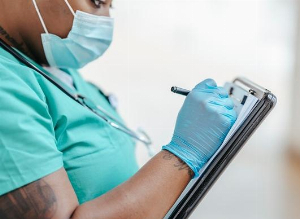What rights do participants have in a clinical trial?
Published Mar 26, 2021 • By Candice Salomé
By participating in a clinical trial you are contributing to the advancement of medicine and science. Moreover, you are putting all the chances on your side since you will benefit from an innovative treatment. But this can be frightening and it is only normal and right for participants to ask themselves a number of questions.
Are there any risks involved in participating in a clinical trial? What rights do participants have? Is it possible to withdraw from a trial?
We tell you everything in our article!

Conducted by health professionals, clinical research aims to improve knowledge of the structure, biology and function of the human body and understanding of the development of disease. It also allows more reliable or advanced diagnostic techniques to be developed, as well as more effective or less invasive treatment techniques.
The aim of clinical research is therefore to advance current knowledge about the human body through the development and implementation of clinical trials.
However, patients are often reluctant to take the plunge for fear of the possible risks
By definition, there is no such thing as zero risk, since clinical research aims to test drugs. Indeed, volunteers may be confronted with possible side effects from the drug being tested. Nevertheless, adverse effects are systematically recorded and analyzed.
If a danger arises during a clinical trial, it is immediately stopped.
It is important to remember that the analysis of side effects is vital and helps to assess the benefit/risk ratio of a new drug.
Clinical trials are very carefully regulated and patient safety is at the heart of every trial.
How is a clinical trial organized?
In the US, the Food and Drug Administration (FDA) regulations for the conduct of clinical trials have been in effect since the 1970s. They address both good clinical practice (GDP) and human subject protection (HSP).
Before, the clinical trial must receive FDA approval before it begins, which is only given upon successful completion of laboratory tests and studies in animals to test the potential drug's safety and efficacy. Additionally, an Institutional Review Board (IRB), an independent committee of doctors, scientist, advocates, and community members, reviews the trial protocol and the institution to ensure that participants are exposed to the minimum possible risks and that the risks linked to the trial are reasonable before any participants can enroll.
An independent Data Safety Monitoring Board (DSMB) further ensures patient safety during the trial by checking for health-related problems (adverse events) and by verifying the safety and effectiveness of the treatment or drug before the trial is completed.
With the exception of certain emergency trials involving vulnerable subjects, participants must give their informed consent before being entered into a trial. Informed consent includes decision capacity, documentation of consent, disclosure and competency. A patient has the right to withdraw his or her consent at any time.
The participant is kept informed throughout the clinical trial.
Prior to participation, the participant has a long meeting with a doctor during which he or she can ask any questions, fears or concerns they may have.
Throughout the process, a medical team monitors the volunteers and remains at their disposal.
Patients' rights in a clinical trial
Right to refuse to take part in clinical research
Every patient has the right to decline taking part in a clinical trial when approached, and they do not have to justify themselves. The patient's care must remain unaffected if he or she refuses. The patient then signs a document attesting that the quality of his or her medical care and her relationship with the health care team will not be affected by the decision not to participate in the trial.
As mentioned previously, informed consent is mandatory for any participation in a clinical trial.
Right to clear, honest and complete information
Throughout the clinical research, the participant must receive clear, honest and adequate information. This information must take into account the participant's level of understanding.
Right to confidentiality
Any data collected as part of the clinical trial must be stored securely and in accordance with data protection law. Personal information must not be disclosed to a third party.
Right to withdraw from research
A patient may withdraw from a clinical trial at any time without having to provide a reason why.
Right to access and change data
Patients can access and change the information given in the clinical trial.
Right to be informed of the trial results
Upon request, participants should receive the full results of the clinical trial.
Was this article helpful to you?
Share your thoughts and questions with the community in the comments below!
Take care!
Sources:
- Être volontaire à un essai clinique, Inserm
- Les droits et devoirs des participants à un essai clinique, AFMPS
- Essai clinique : droits du patient, Planète Santé
- Comment s’organise la protection des patients au cours des essais cliniques ?, Leem
- Droits du patient, Gustave Roussy
- Clinical Trials and Human Subject Protection, U.S. Food & Drug Administration
- What Are Clinical Trials and Studies?, NIH
- What rights and protections do participants have in a clinical trial?, Pancreatic Cancer Action Network
Comments
You will also like

What are the dangers associated with the over-the-counter sale of certain medicines?
Dec 19, 2020 • 6 comments

 Facebook
Facebook Twitter
Twitter

